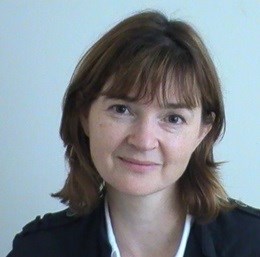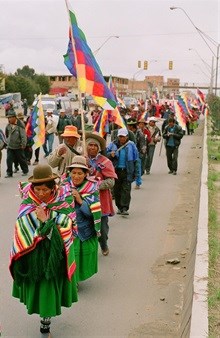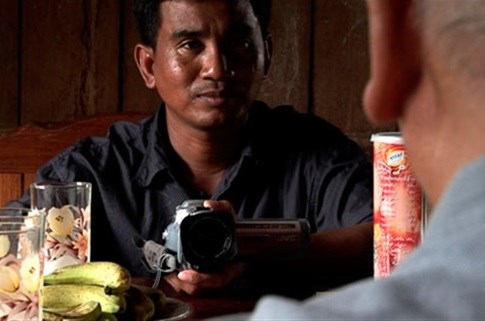If the thought of sitting through a documentary has you flicking through the channels faster than you can say 'I prefer mindless entertainment', the new BBC World News series Storyville Global, might change your mind...
If you're a DStv subscriber, you may have noticed that BBC World News kicked off the New Year with a new international documentary series titled Storyville Global. The twenty films, chosen and produced by the Why Foundation, are directed by different filmmakers and depict a range of contemporary political, cultural and human rights issues.

Mary Wilkinson, Commissioning Editor for BBC World News
But what gives this doccie series more pull than others? For starters, Mary Wilkinson, Commissioning Editor for BBC World News, says it follows the successful Why Democracy and Why Poverty documentary series previously broadcast on BBC World News, so if viewers watched those, they'll have an idea of what to expect.
Wilkinson says they were extremely well made thanks to the collaborative funding model, as several public service broadcasters contributed to the budget via the not-for-profit Steps Foundation that co-ordinated the projects. She says while this investment helps, so does expert editing and the anecdotal reaction to these, from emails and comments in their viewers' panel, as this showed there is a genuine appetite for in-depth exploration of big global themes... if the storytelling is good enough. "That's the bread and butter of what we do on BBC World News, so it felt like the perfect fit," Wilkinson explains.
I asked Wilkinson a little more about the series and what makes documentaries so important in general...
 Let's start off with a brief description of the Storyville Global series.
Let's start off with a brief description of the Storyville Global series.
Wilkinson: Storyville Global, which started on BBC World News this weekend, showcases an exciting range of high-quality documentaries from around the world. The first five titles give a real sense of the range. From one woman's political struggle in Bolivia, to the horrors of the Cambodian genocide, creeping nationalism in Russia, life in Taliban-held rural Afghanistan, and the world's largest Chinese restaurant, the series explores some of the biggest issues of our time. But it does so at a very human level, focussing on the extraordinary stories of individuals caught up in events.
 Why is now the perfect time for this series to be broadcast to a global audience?
Why is now the perfect time for this series to be broadcast to a global audience?
Wilkinson: This has been true for a number of years now, but most of us are increasingly aware that what happens on the other side of the world can have a direct impact on us. Whether it's the rapid growth in China's economy, mass migration or radical jihadist groups, the world feels smaller and more connected. This is definitely driving interest in international news and more in-depth documentaries that help explain the world. BBC World News is watched by 76 million people every week, so there's clearly an appetite for global stories.
 Well said. Are any African stories featured in the Storyville Global series?
Well said. Are any African stories featured in the Storyville Global series?

Putin's kiss
Wilkinson: Storyville Global is a 20-part series and we have only confirmed the first five so far. However, our commitment to showcasing the best African talent remains strong and we're talking to a number of African film-makers, including a South African director, about the potential to include their films in the series.












































 Let's start off with a brief description of the Storyville Global series.
Let's start off with a brief description of the Storyville Global series. 




